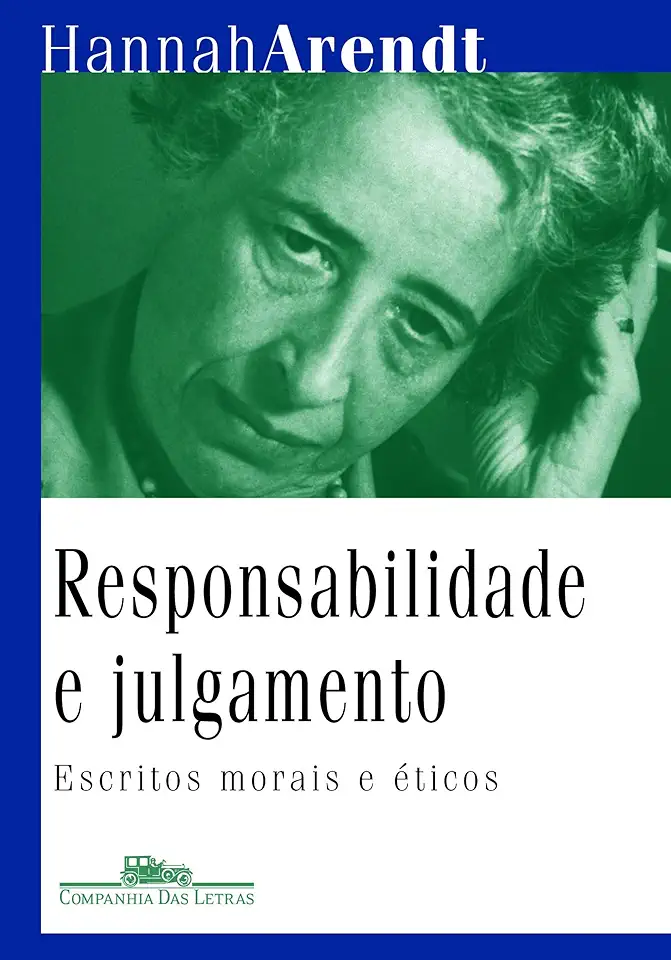
Responsibility and Judgment - Hannah Arendt
Responsibility and Judgment: Hannah Arendt's Exploration of Moral Action
In her seminal work, "Responsibility and Judgment," Hannah Arendt delves into the complex relationship between responsibility and judgment, offering a profound exploration of moral action and the human condition. Arendt argues that responsibility is not simply a matter of following rules or adhering to moral principles, but rather a dynamic process of thinking and acting in the face of uncertainty and unforeseen circumstances.
The Essence of Responsibility
Arendt begins by examining the nature of responsibility, distinguishing it from mere obedience or conformity. She argues that responsibility entails taking ownership of one's actions and their consequences, even when they are unintended or unforeseen. Responsibility, in Arendt's view, is not a static concept, but rather a continuous process of self-reflection and moral growth.
The Role of Judgment
Central to Arendt's exploration of responsibility is the concept of judgment. Judgment, she argues, is not simply a matter of applying pre-existing rules or principles to a given situation. Rather, it is a complex process of weighing and considering the unique circumstances of each case, taking into account the intentions of the actor, the context in which the action took place, and the potential consequences.
The Importance of Plurality
Arendt emphasizes the importance of plurality in the exercise of responsibility and judgment. She argues that true responsibility can only emerge in a context of dialogue and deliberation with others, where different perspectives and experiences can be brought to bear on a situation. Plurality, in Arendt's view, is essential for avoiding the dangers of dogmatism and moral absolutism.
The Challenge of Evil
Arendt confronts the profound challenge posed by the existence of evil in the world. She argues that evil is not simply the opposite of good, but rather a radical negation of human values and norms. Arendt's analysis of evil is particularly relevant in the context of the Holocaust, which she saw as a manifestation of the extreme consequences of moral indifference and the abdication of responsibility.
The Promise of Hope
Despite the challenges posed by evil and the complexities of moral action, Arendt concludes "Responsibility and Judgment" on a note of hope. She argues that the capacity for responsibility and judgment is inherent in the human condition, and that it is through these faculties that we can strive for a more just and humane world.
Why You Should Read "Responsibility and Judgment"
"Responsibility and Judgment" is a profound and thought-provoking exploration of moral action and the human condition. Arendt's insights into responsibility, judgment, and the challenge of evil are essential reading for anyone interested in ethics, politics, and the pursuit of a meaningful life.
This book will challenge your assumptions about morality and inspire you to think more deeply about the choices you make and the consequences of your actions. It is a must-read for anyone who wants to understand the complexities of moral responsibility and the importance of judgment in a world that is often uncertain and unpredictable.
Don't miss out on this opportunity to gain a deeper understanding of the human condition and the power of responsibility and judgment. Get your copy of "Responsibility and Judgment" today and embark on a journey of moral exploration that will stay with you long after you finish reading.
Enjoyed the summary? Discover all the details and take your reading to the next level — [click here to view the book on Amazon!]